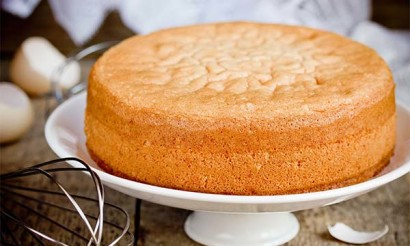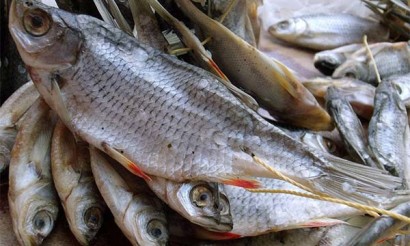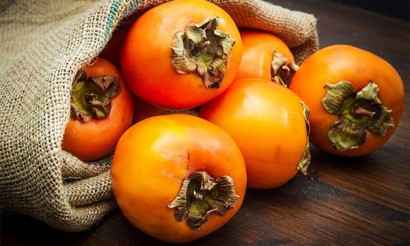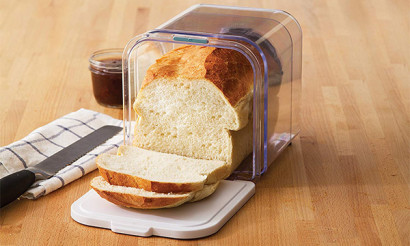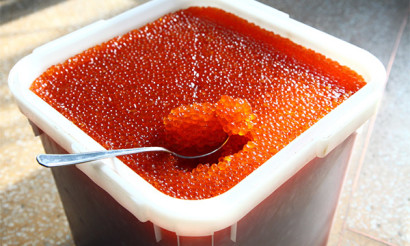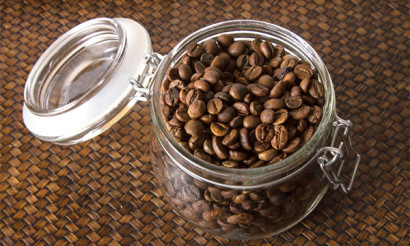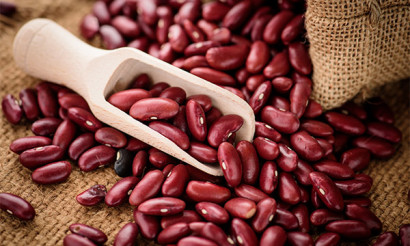How to store pineapple at home
Pineapple is an exotic guest from the hot tropics. For many years, this fruit on the table was considered a symbol of wealth and well-being of the homeowner. Today it is much more accessible and takes a confident position on store shelves.
Because of its unusual appearance, the pineapple is easily recognized and always attracts attention. The fruit is formed from a large oval-shaped inflorescence with many ovaries that protrude bronze-colored tubercles on the surface. On top is a bunch of dense green leaves. But all the most valuable, of course, is inside. Its fragrant and juicy pulp has a unique composition with rare properties.
The benefits of pineapple
This is the rare case where the delicious turns out to be incredibly useful. Pineapple flesh is 80-90% water, which is why it is so juicy. An undeniable plus is the high content of plant fiber (fiber), which stimulates the metabolism and peristalsis of the gastrointestinal tract. It is the plant type of fiber that brings the main benefit, cleaning the body of bacteria and toxins, reducing the level of harmful cholesterol and contributing to the loss of excess weight.
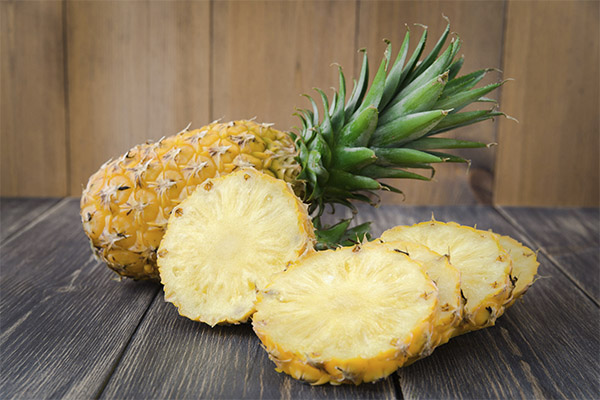
The following active substances are concentrated in the juice, which create all the value of the product:
- Beta-carotene (provitamin A) - is involved in the most important reactions occurring in the body, in particular the metabolism of fats. Beneficial effect on vision, skin, hair and mucous membranes.
- Vitamin B1 - is essential for the normal functioning of the nervous and cardiovascular systems. It participates in enzymatic reactions.
- Vitamin B2 - is an essential link in carbohydrate, protein and fat metabolism, and is involved in the process of hematopoiesis. It is necessary for the preservation of vision, the absorption of iron, and normal functioning of the gastrointestinal tract.
- Vitamin B6 - used to treat diseases of the nervous system, stomach ulcers and anemia.
- Vitamin B12 - stimulates metabolism, is involved in hematopoiesis. Widely used in the treatment of neurological diseases.
- Vitamin PP (nicotinic acid) - speeds up the regeneration of tissues. It has a vasodilator effect. Improves vascular function of the arms and legs, helps to normalize cerebral circulation.
- Vitamin B9 (folic acid) - promotes iron absorption, is used in diseases of the nervous system and in the treatment of cancer.
- Vitamin C (ascorbic acid) - has antioxidant and choleretic effect, protects the walls of blood vessels.
- Vitamin K - is involved in blood clotting.
Pineapple also contains:
- Trace elements: iron, copper, zinc, iodine, manganese, selenium.
- Macronutrients: calcium, magnesium, potassium, phosphorus.
Unique bromelain
The vegetable enzyme bromelain contained in pineapple can rightly be considered the highlight of this unique fruit. It is this enzyme that gives it a peculiar, slightly "burning" taste.
The main property of this enzyme is the ability to break down fat tissue and influence the digestion of proteins.
- Bromelain has an anti-inflammatory effect and is good for relieving edema. Scientists have proven its effectiveness in inflammatory diseases of the joints (arthritis) and intestines (colitis, Crohn's disease). The enzyme also speeds up recovery of muscles and tendons during sprains, sprains, and after intensive training.
- It is noted the ability of bromelain to dissolve blood clots in blood vessels, reducing blood viscosity, destroying cholesterol accumulations. Therefore, it is recommended to use pineapple to prevent heart attacks, strokes and varicose veins.
- According to recent studies, bromelain has been shown to be effective in fighting cancer cells. This ability is justified by the enzyme's stimulating effect on the body's immune system.
- There is evidence of the positive activity of bromelain in allergic diseases and bronchial asthma.
- Rich in useful substances, pineapple has a beneficial effect on the reproductive system of women and men. It also helps women cope with PMS, eases the menopause. For men, pineapple helps maintain potency and prostate health, fills the body with energy.
- The fruit proved itself well with colds, coughs and even sinusitis. 100 grams of pineapple contains half the daily allowance of vitamin C, which strengthens the walls of blood vessels and increases immunity. Bromelain activates the body's defenses and liquefies mucus (phlegm from coughs, stale secret from sinusitis).
- Pineapple speeds up critical metabolic processes, normalizes fat metabolism.
Regular intake of pineapple will contribute to:
- Elimination of heaviness in the stomach and nausea in case of overeating and an abundance of fatty foods;
- the normalization of metabolism;
- purification of the intestine from toxins;
- regulation of blood pressure;
- Strengthening of the walls of blood vessels;
- reduce the risk of cardiovascular disease;
- protection against infections;
- preserving youth and beauty;
- saturating the body with energy.
Important! Limit the use of the product to children under 6 years of age, pregnant women, as well as with individual intolerance, diabetes and during exacerbation of gastritis and peptic ulcer disease.
After eating it, it is recommended to rinse the mouth to protect the tooth enamel from the acid.
How to Store Pineapples Properly
The storage conditions of pineapple largely determine both its taste qualities and useful properties. If you follow certain rules, you can preserve its freshness as effectively as possible.
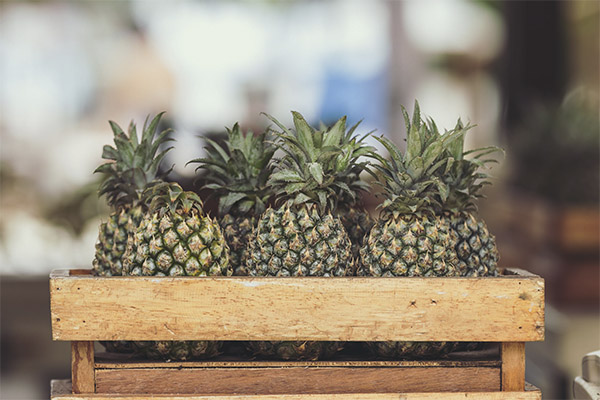
When buying a pineapple, you should select it according to how long you plan to keep it. For short-term consumption, you should choose a ripe fruit, which can be recognized by the following signs:
- when lightly striking a ripe pineapple, the sound should be muffled;
- if you pull on the leaf, it will detach;
- The surface should not be hard, but not soft either;
- The stronger the flavor, the riper the pineapple.
Only a whole pineapple with no signs of spoilage can be left for delayed consumption. It should not have obvious dents, stains or mold on it.
If the pineapple is not ripe you can leave it for ripening for a while.
Storing
Ripe fruit is best stored in the refrigerator under certain conditions:
- A suitable temperature is about 8 degrees. A higher temperature will create conditions for spoilage, and a low one will worsen the taste. Usually the right temperature in the refrigerator is in the fruit and vegetable compartment.
- The required humidity should be about 90% to avoid rotting or drying out.
- Pre-wrapping in paper will create a favorable microclimate for the pineapple. You can also place the fruit in a breathable bag.
If all recommendations are followed, the ripe pineapple can be stored in the refrigerator for up to two weeks.
At room temperature, the ripe fruit can stay fresh for one to two days. The air temperature should be 18-20 degrees. The best place for storage is a place that can provide the necessary humidity (about 90%) and good air circulation. Several times a day, it is desirable to turn the pineapple.
Can I freeze it?
It is possible to freeze the pineapple, but it is important to do it correctly in order to preserve its useful and gustatory qualities.
Both ripe and unripe fruit can be frozen, but they have to be washed and dried first. Then carefully cut off the leaves from the top and remove the skin. The pulp should be cut into pieces of any size and shape, placed in bags or containers and placed in the freezer. You can freeze the rings separately first, placing them on a pallet, and then collect them in one container. The core is usually cut in a circle in the center with a diameter of 2-3 cm.
To freeze a whole pineapple with the skin, you need to wash it, dry it, cut off the leaves, place it in a bag and put it in the freezer. The tightness of the package during freezing will preserve high flavor qualities, will protect from extraneous odors. If done correctly, frozen pineapple can be stored for up to 4 months. Repeated freezing of the fruit is not allowed.
Where to store and ripen a pineapple?
Unripe pineapple should be wrapped in paper and left for two or three days at a room temperature of about 22 degrees. You should choose a well-ventilated place. It is desirable to turn the fruit several times during the day. If you place apples next to each other, this will speed up the ripening process because of the ethylene gas that is released.
Are there any benefits to dried apples?
A good option for extending the shelf life of the pineapple is to dry it. The method allows you to preserve not only the taste, but also the useful properties of the product without adding preservatives. The pineapple must be mature.
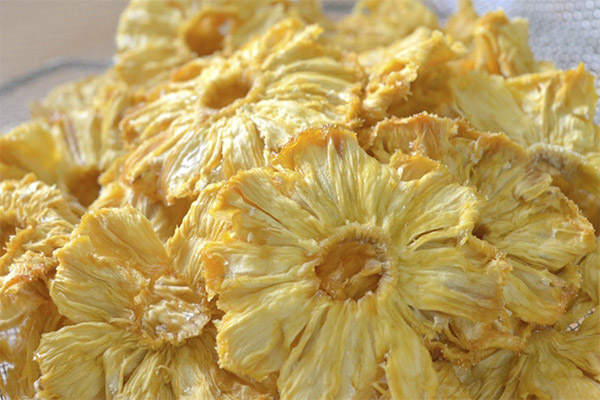
Drying the prepared pineapple slices with the core removed, which should be about 5 mm thick, is recommended at a temperature of 60-70 degrees. This can be done in an oven or in an electric dryer, setting the right temperature mode. In terms of time, the entire process will take 24-36 hours. During the drying process, it is advisable to periodically turn the slices. The fruit cooked in this way will be stored for several months, preserving its useful properties.
Drying the slices, pre-cooked in sugar syrup, you can get delicious candied fruits. To make them, you need to take as much sugar as the weight of the pineapple itself, and prepare the syrup, adding water in a ratio of 1:1. When the syrup boils for 5 minutes and cools a little, you need to pour it cooked pieces and boil on low heat until the liquid begins to thicken. Turn off the fire, leave it for 24 hours. Then boil again for 20 minutes and leave for another day. On the 4-5 day soaked in syrup slices should be removed and dried in one of the ways.
Pineapple slices dried in the usual way will be healthier. Candied pineapples will taste better, but boiling will destroy some of the useful substances, and the caloric value will be an order of magnitude higher.
Canned pineapple slices
Extend the shelf life of pineapple slices up to 1 year by canning, subject to the subsequent placement of preparations in a cool and dark place. The fruit should be carefully washed and dried. After cleaning, cut into rings and place in an enameled container. Then pour the sugar dissolved in water (at the rate of 500 g of sugar, 1 liter of water) so that it covered the pineapple slices, and leave in this form at room temperature for about 12 hours. Then boil for 10 minutes, put in sterilized jars, pour the hot sugar syrup and seal.
Interesting facts about the pineapple
Did you know that the pineapple is an herb?
The debate about this amazing product is not over until now. There are different opinions that the pineapple is:
- A vegetable (grows on the ground);
- a fruit (the fruit has no seeds);
- berry;
- A cereal (has a similar stem structure).
But the pineapple is still considered a herb. It is a perennial herbaceous plant with a flock of many densely seated ovaries, which eventually form a whole large fruit.
Arrived in Europe along with the potato
The traveler and navigator Christopher Columbus introduced Europeans to the pineapple. He brought the sweet fruit along with potatoes and corn. It turned out that this plant is very heat-loving and it was not possible to cultivate it in a temperate climate. The pineapple was introduced to Russia in the 18th century, during the reign of Peter the Great.
The source of vivacity
Despite its sweetness, the pineapple is considered a dietary staple. Its carbohydrate content is quite high, but the sugars have a complex structure. Therefore, they do not harm the body, but saturate it with strength and energy.
Variable caloric value
In 100 g of fresh pineapple pulp contains only 52 kcal. The caloric value of dried slices increases 7 times and is 347 kcal per 100 g. Therefore, dried pineapple is no longer dietary.
How to peel a pineapple quickly and simply
There is a simple way to easily get neat and appetizing pineapple slices. In a washed and dried fruit, you need to cut off the leaves on one side, on the other - the bottom part. Then cut lengthwise into four equal pieces. You get neat triangles that you can peel or just eat the pulp, holding the pieces by the skin.
Pineapple Degrees.
In Mexico, a drink similar to pineapple peel broth is made. The peels are poured into a solution of sugar in water and left in a warm place. When fermentation begins, the drink is consumed with an ice cube.
Away with dry calluses and corns.
Due to its high acidity, pineapple pulp helps in the fight for a smooth surface of the skin on the feet. From it make a compress and apply it for 12 hours. Feet should be previously steamed, it will improve the effect. Such compresses soften dry calluses and corns, after which they can be gently removed.
Pineapple as Mandarin
Since the pineapple is a fruit, Brazil has bred a special variety. The tangerine pineapple does not need to be peeled, it easily breaks into slices.
Natural Fabric
Dense pineapple leaf fibers are used to make cloth. It is very dense and has the properties of leather. This material is used to make bags, shoes, wallets. It is used to upholster furniture.
Facial skin rejuvenation
Vitamins, microelements, polysaccharides in the composition of the pineapple determine its use in cosmetology. On the basis of the nourishing pulp make masks, scrubs, peelings for oily and problematic skin.
At home, pineapple pulp can be used for rejuvenating tonic facial masks. For example, a mixture of one cup of pineapple with a tablespoon of banana pulp and a teaspoon of honey in 10 minutes will give the skin a healthy look, having a powerful nourishing effect.
Although the pineapple itself contains no essential oils, it gives off its nutrients in an oily environment. It is cut into pieces and poured with olive oil. The resulting "pineapple oil" well moisturizes and saturates the skin with vitamins, gives it energy and elasticity.
Pineapple has a unique composition enriched with active substances. Regular intake of pineapple can bring great benefits to the body. As in everything, the main thing is to follow a moderation. Three slices of pineapple a day will be enough to get the best out of it and enjoy its delicate flavor. To provide yourself with such a useful pleasure for a long time, store the pineapple correctly.
«Important: All information on this site is provided for informational purposes only for your own health. Consult a specialist before applying any recommendations. pineapple preservation as a health care professional. Neither the editors nor the authors shall be liable for any possible harm caused by materials."

